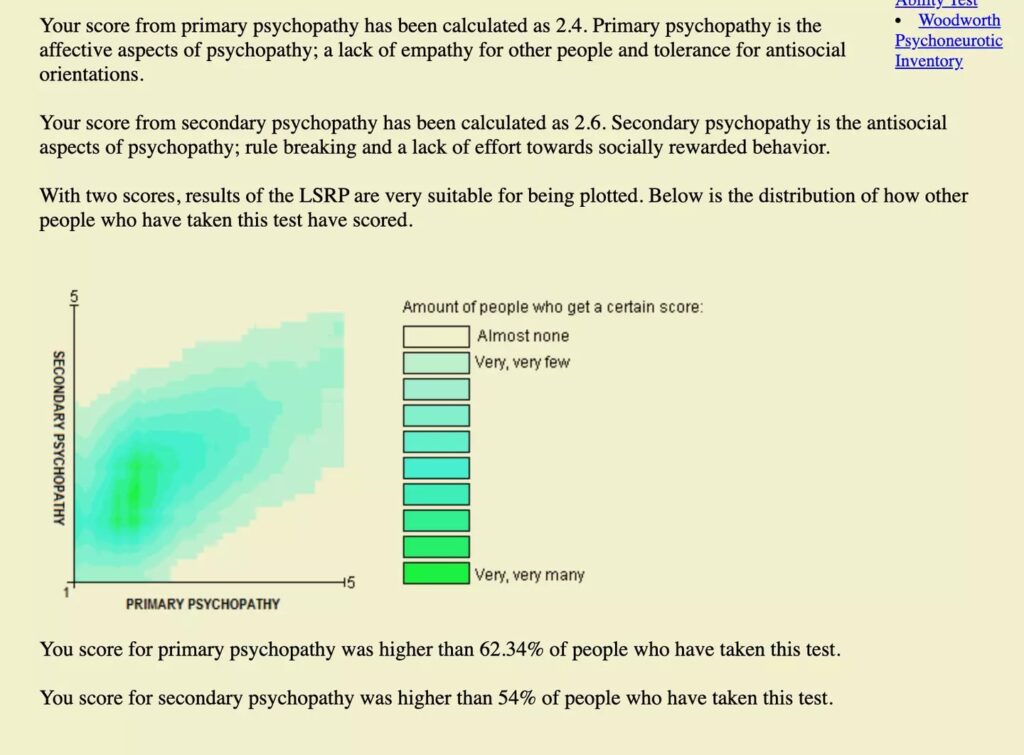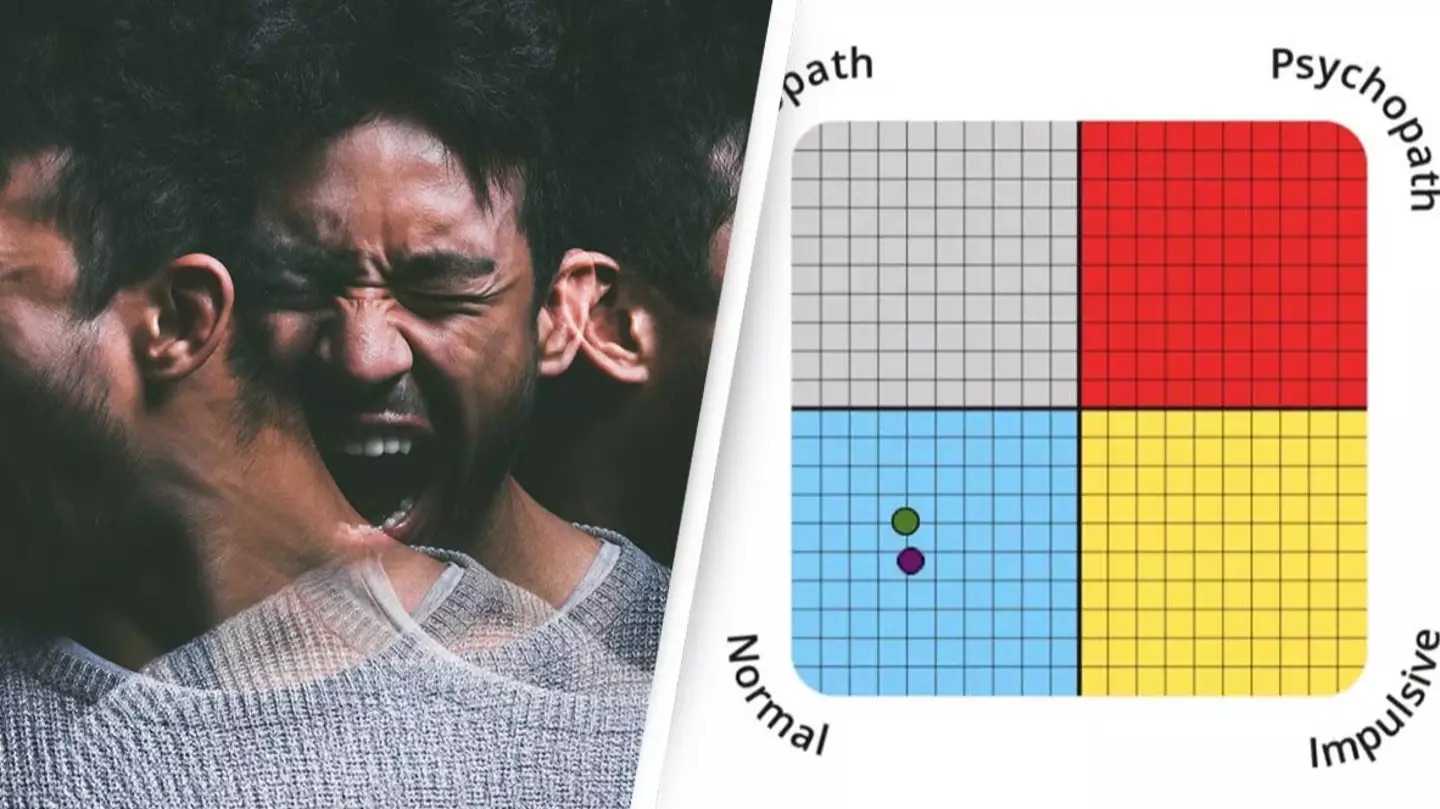An online test claims to identify psychopathic tendencies within minutes. Despite common misconceptions, “psychopath” is not an official mental health diagnosis but rather a colloquial term often linked to antisocial personality disorder (ASPD).
Signs of ASPD typically include chronic lying, manipulation, and harming others, alongside frequent displays of anger, arrogance, and impulsive behaviors that result in negative outcomes.

The test consists of 26 questions based on the Levenson Self-Report Psychopathy Scale, developed in 1956 by Oregon State University psychology professor Michael Levenson. It aims to gauge how many people relate to psychopathic traits.
After completing the quiz, participants receive a score reflecting their position on the psychopathy spectrum. The test asks respondents to rate their agreement with various statements on a scale from one (strongly disagree) to five (strongly agree). These statements range from lifestyle indicators, like “I am often bored,” to attitudes such as “I admire a clever scam” and “I enjoy manipulating other people’s feelings.”
Results are divided into two categories: primary psychopathy, which measures emotional detachment, and secondary psychopathy, which assesses impulsive lifestyle traits. If you’re curious, you can try the Psychopathy Spectrum Test, which will place your score on a scale of one to five in comparison with others.

A higher score suggests a greater likelihood of psychopathic tendencies. However, ASPD also includes sociopathy, which is frequently confused with psychopathy. While both share traits like “disregard for social norms and manipulation,” according to Talkspace, there are notable differences.
Mental health counselor Bisma Anwar explains, “Psychopathy is often rooted in genetics or congenital injury, whereas sociopathy tends to result from environmental factors.”
Sociopaths are typically “highly emotional,” experiencing frequent outbursts or mood swings. Though they may engage in harmful behaviors, they often rationalize their actions. Sociopathy is often linked to trauma and environmental triggers, while psychopathy is more closely tied to genetics and biology.
